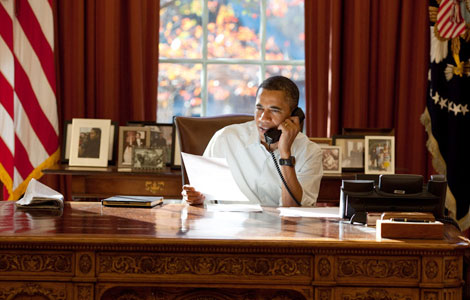Odierno: US, China to work on issues
Updated: 2014-01-08 08:14
By By CHEN WEIHUA in Washington (China Daily USA)
|
||||||||
US Army Chief of Staff General Raymond Odierno said on Tuesday that the US must work with China and its allies and partners in the region on the East China Sea Air Defense Identification Zone (ADIZ) announced late last year.
China's declaration in November of the ADIZ sparked opposition from the US and its allies in the region, Japan and the Republic of Korea. The US said it does not recognize the zone, but it did recommend to US commercial airlines that they file applications as a safety precaution.
Both China and the US have since played down the issue, as well as a near collision in early December between the guided missile cruiser USS Cowpens and a smaller Chinese warship escorting the aircraft carrier Liaoning in the South China Sea. China said it had announced an alert for the exercise in the area at the time.
"This is about us working through some very difficult issues in order for us to ensure that we sustain a level of security that is necessary for us and in the best interest of our allies and in the interest of building a strong relationship with China," Odierno said of the ADIZ in his talk at the National Press Club in Washington on Tuesday.
"This is something we have to constantly work with them on, constantly work with other partners in the region as we move forward," he said.
Chinese Ambassador to the US Cui Tiankai said last Friday that the two countries already have sufficient communications on the ADIZ issue and he believes the US fully understands it.
"I don't think it is an issue of major difference between China and the US," he said, adding that the US and other countries already declared their ADIZs long time ago and China's ADIZ only added to a long list.
"From the beginning, it did not deserve making such a fuss over, and the two sides have maintained open lines of communication," Cui said.
Odierno, who was the commander of US Forces in Iraq and the Multi-National Force-Iraq from 2008 to 2010, also explained at the meeting that the US rebalance to the Asia Pacific is due to the fact that many soldiers belonging to the Pacific Command went to Iraq and Afghanistan in previous years.
"Last year, we stopped that, so they're now all back in the Pacific region, so that's our rebalance as we call it," he said.
The Pentagon announced on Tuesday the rotational deployment of the 1st Cavalry Division's 1st Battalion, 12th Regiment, from Fort Hood, Texas, to Camp Hovey and Camp Stanley in the Republic of Korea. The combined arms battalion, with about 800 soldiers, will be deployed on Feb 1 to conduct operations in support of US Forces Korea and the US 8th Army.
Odierno described it as something that had been planned for a while. "It's something we're executing now," he said.
China has been wary of the US force relocation to the Asia Pacific, regarding the US strategy of rebalance to the Asia Pacific, especially the military part, as something aimed at countering China’s growing influence in the region.
Odierno said in a talk on Nov 14 at the Flectcher School of Tufts University that the decision to rebalance forces in the Pacific is not about competing with China.
"It's not about worrying about military conflict, but it is about balancing China's influence in the Asia Pacific, and the military plays a huge role in that," a Flectcher School report quoted him as saying.
The fresh rotational deployment in ROK this time is likely to trigger outrage from the Democratic People’s Republic of Korea, whose leader Kim Jung-un recently shocked the world by executing his uncle Jang Song-thaek.
Odierno also emphasized the importance of cybersecurity but he said he was not going to point fingers at China, Iran, Russia or any other countries.
He described cyber attacks as a relatively inexpensive way to attempt to impact issues around the world.
"It's about a capability that people can now exploit in order to try to gain advantages. And from the military perspective, it's about how do we understand that to protect our networks and protect our systems?" he said, adding that it was going to impact the future of warfare.
"We already have some significant capability, we're going to expand it as we move forward," he said.
Odierno was expected to visit China late last year, but it is not known why the trip has not taken place.
High-level military exchanges between the countries have increased in the past year, with Chairman of the Joint Chiefs of Staff Martin Dempsey visiting China in April and Chinese Defense Secretary Chang Wanquan visiting the US in August.
Wu Shengli, commander-in-chief of the People's Liberation Army Navy visited the US in September while Mark Welsh III, chief of staff of the US Air Force, went to China in October.
US Defense Secretary Chuck Hagel told his Chinese counterpart in August that he "enthusiastically accepted" his invitation to visit China in 2014.
chenweihua@chinadailyusa.com
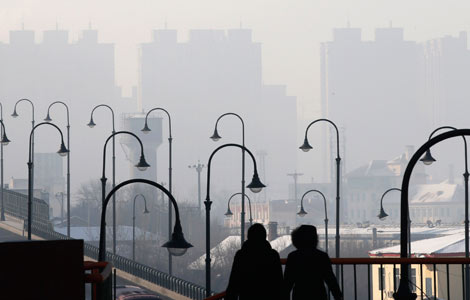
 Pollution's effect on health not clear yet, officials say
Pollution's effect on health not clear yet, officials say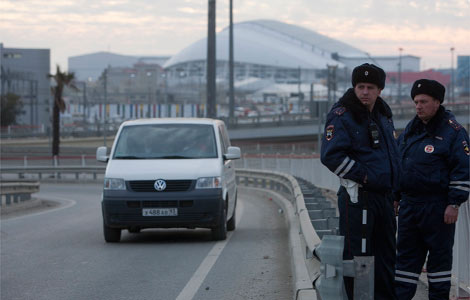
 Russia imposes security clampdown in Sochi before Olympics
Russia imposes security clampdown in Sochi before Olympics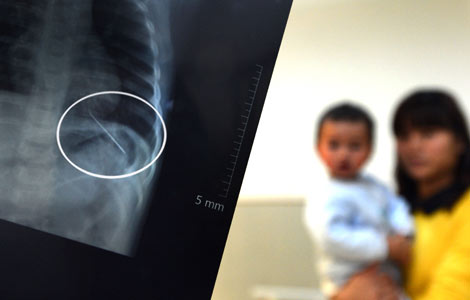
 X-ray reveals crying toddler had 5-cm needle inserted in his lung
X-ray reveals crying toddler had 5-cm needle inserted in his lung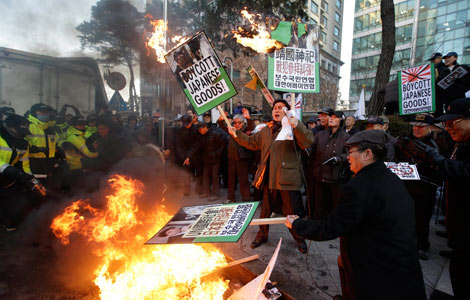
 Tokyo urged to end militarism
Tokyo urged to end militarism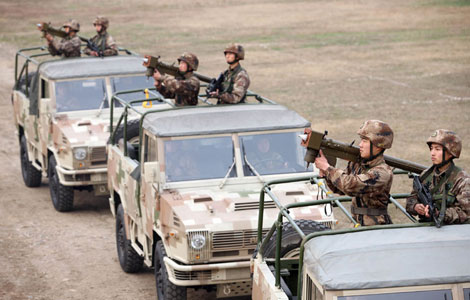
 Military drill in SW China
Military drill in SW China
 Rodman in DPRK with ex-NBA team
Rodman in DPRK with ex-NBA team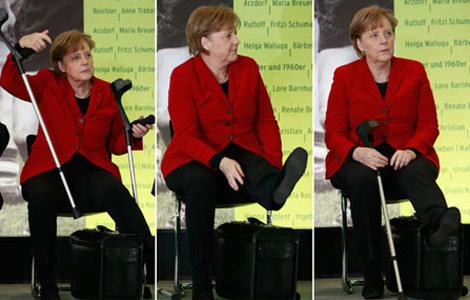
 Merkel breaks pelvis
Merkel breaks pelvis
 Trick photography
Trick photography
Most Viewed
Editor's Picks

|

|

|

|

|

|
Today's Top News
US-China trade deficit narrows, again
Staying ahead of the game
Odierno: US, China to work on issues
China is importing more US-built cars
Reform plan faces `challenges’: Professor
US jobless bill clears Senate hurdle
Solar firms face 'total eclipse' in US
Hong Kong Media mogul Shaw dies
US Weekly

|

|


